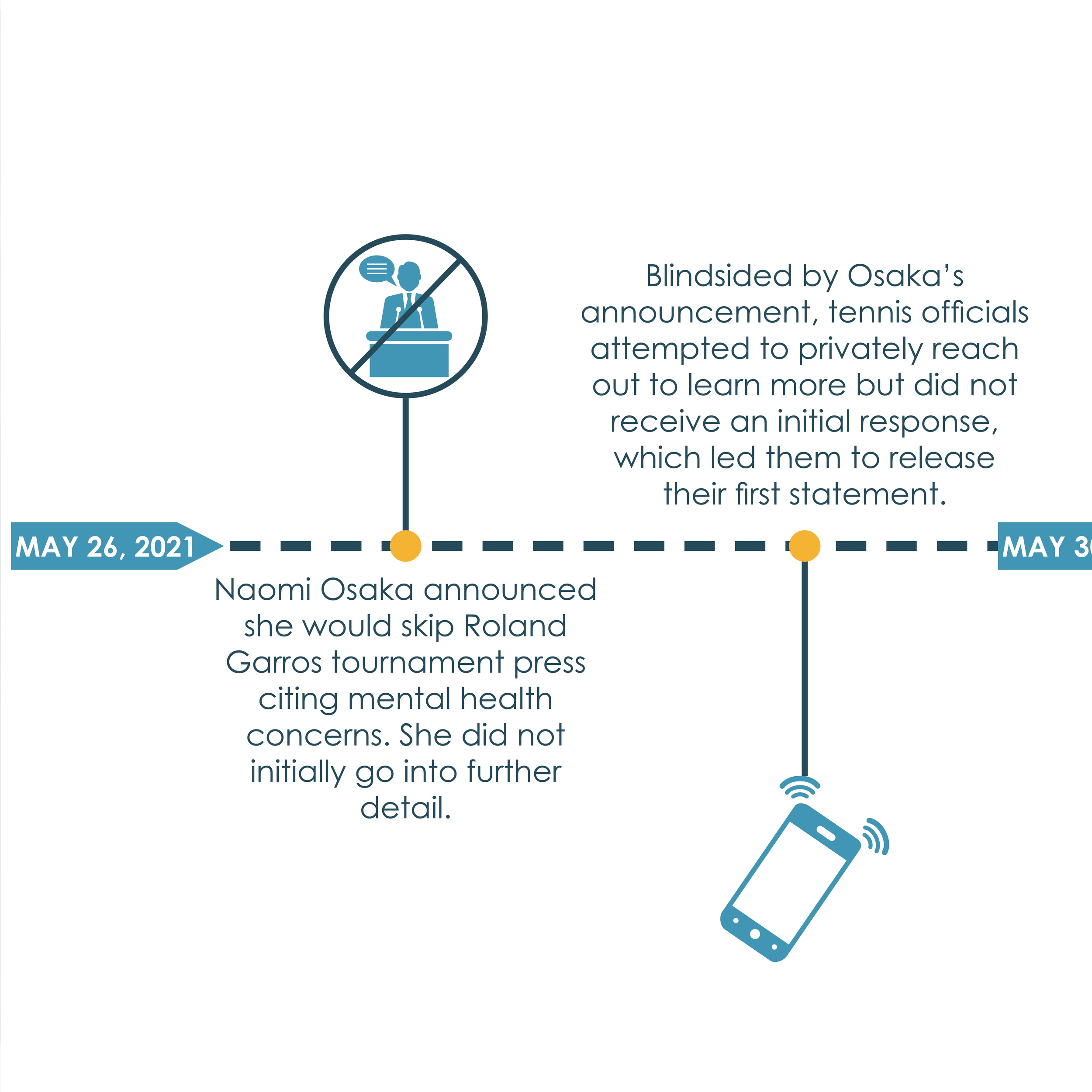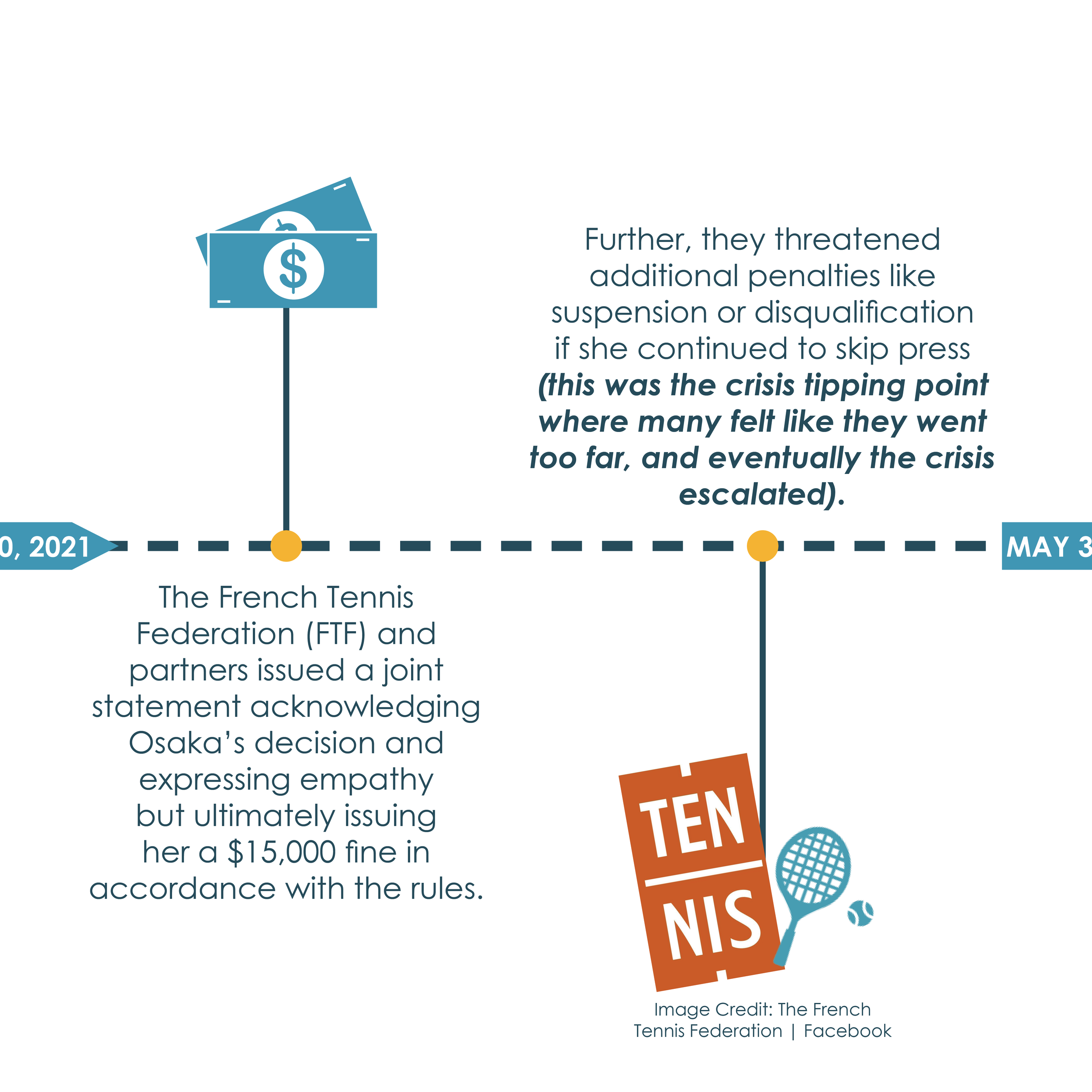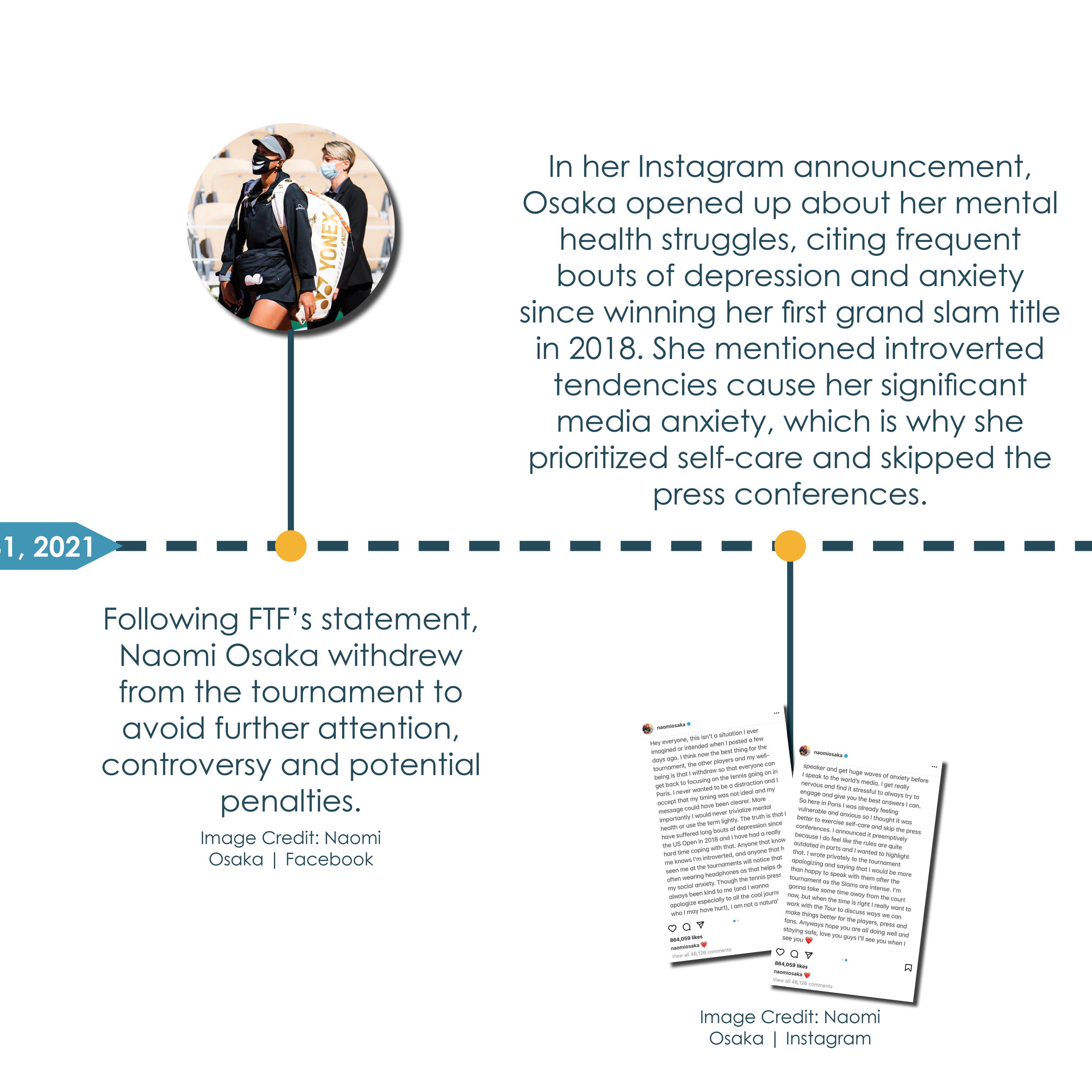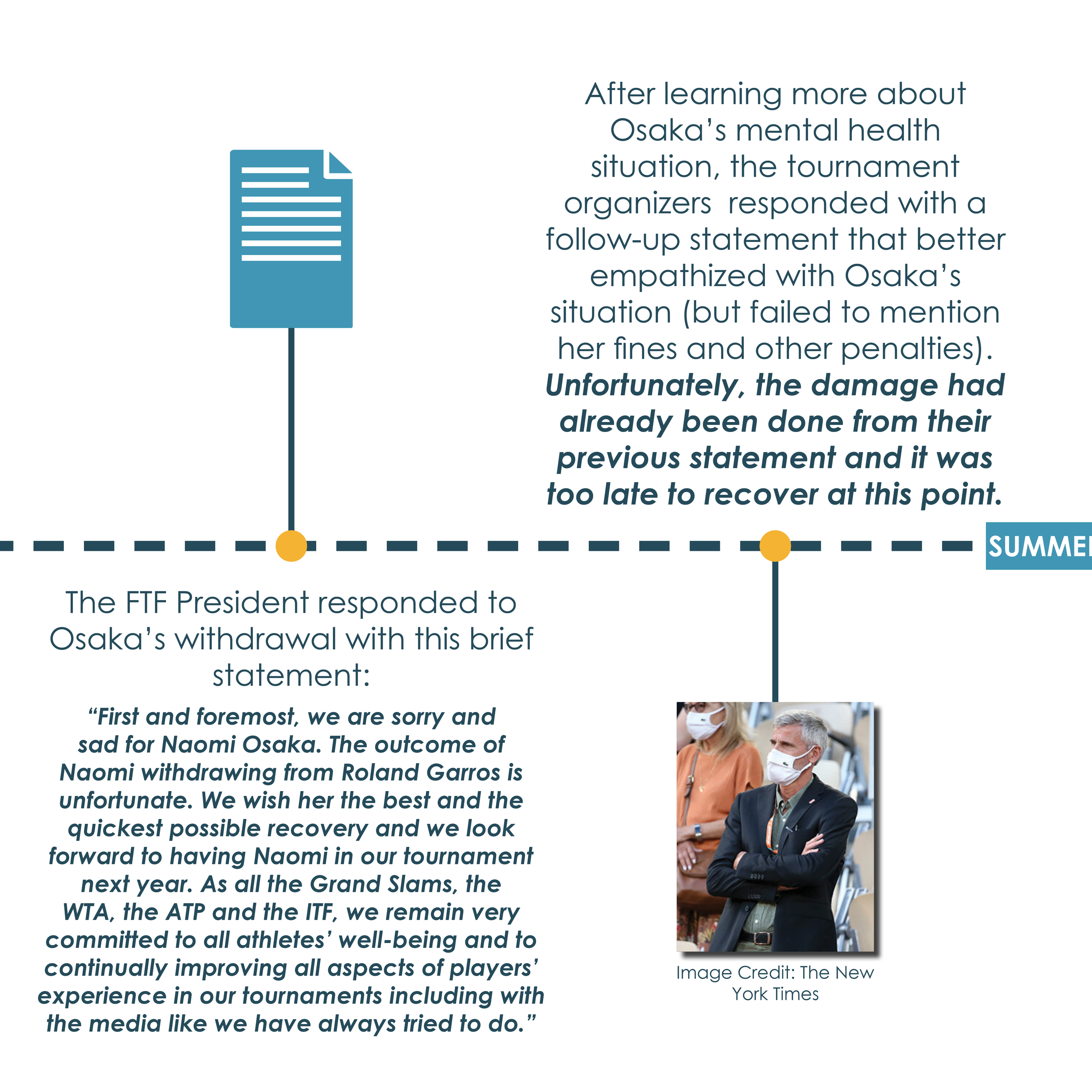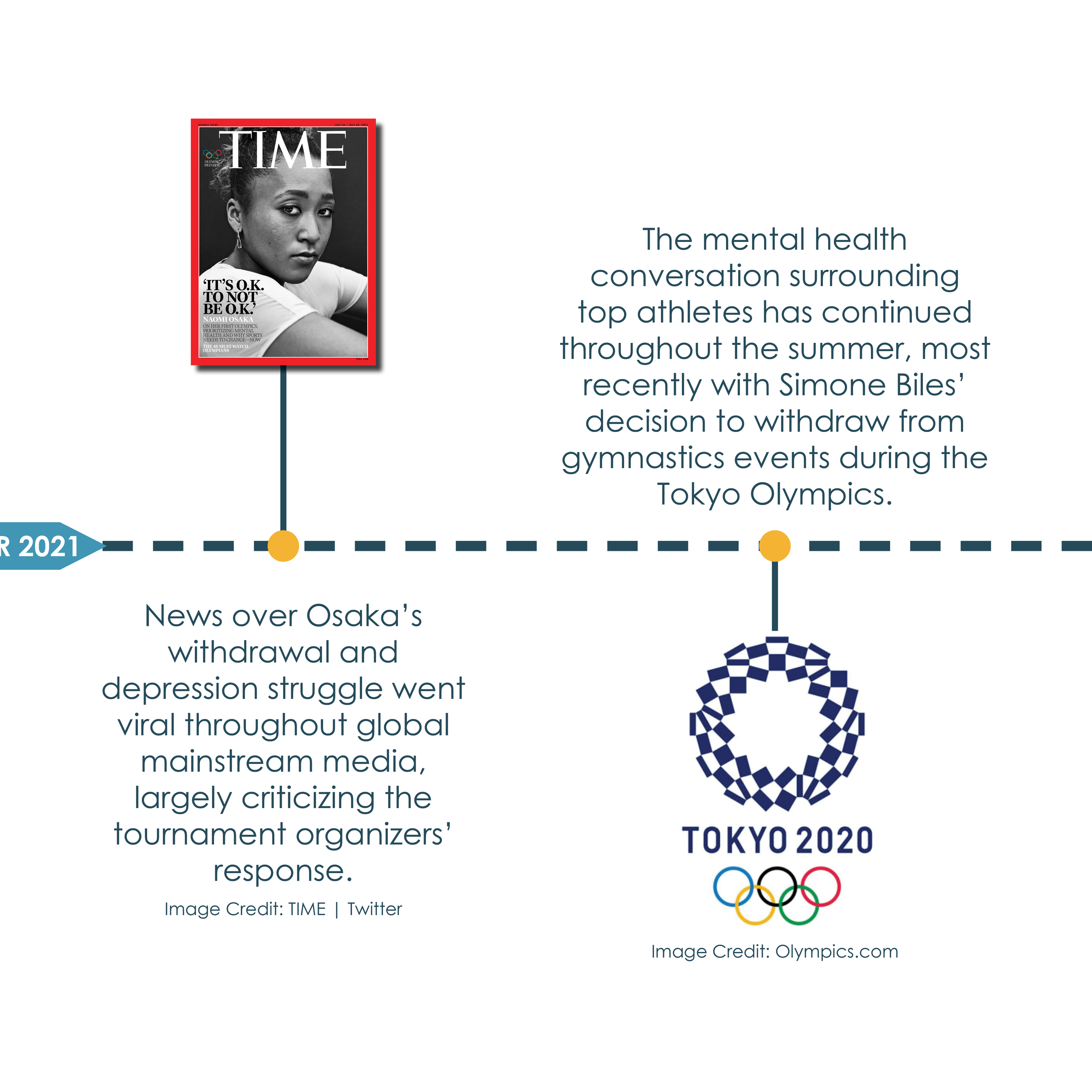Crisis Corner: Naomi Osaka, Media and Mental Health
Have you ever read about a large, public crisis and wondered how you would have responded? Learn from our crisis communications team and join us each month as we break down real-life scenarios, walk through key insights and learn appropriate response tactics. This month, we’re taking crisis corner to the tennis courts. Instead of analyzing a large-scale corporate crisis, we’re switching gears to discuss one of the season’s most talked about sports stories featuring Naomi Osaka.
As the No. 2 world-ranked professional women’s tennis player, Osaka has been dubbed by many as the heiress to Serena Williams’ throne that she has occupied for the last two decades.
Image Credit: Naomi Osaka | Facebook
With four grand slam titles to her name at the ripe age of 23 and 2020 earnings totaling nearly $55 million, the Japanese tennis superstar is currently the highest paid female athlete in the world and one of a small group of elite tennis players who has transcended tennis to become a recognizable global icon. This level of fame comes with a significant amount of pressure, which leads us to our crisis corner discussion.
How does a sport’s governing body navigate a mental health crisis affecting its most prominent athlete while also protecting the tennis media ecosystem that has helped make tennis the most viable professional women’s sport today?
Challenge
WHO: French Tennis Federation and Naomi Osaka
WHAT: Days before Roland Garros, one of four grand slam tennis tournaments held in Paris each year, Naomi Osaka announced she would not participate in any press during the tournament for mental health concerns. Participating in press is a requirement for all tournament players, and those who skip press receive fines clearly stated in the rulebook.
WHEN: May/June 2021 leading up to Roland Garros
WHERE: Paris, France
WHY: After getting word of Osaka’s decision, tournament organizers from the French Tennis Federation issued a series of responses that were widely criticized as insensitive to Osaka’s mental health struggles.
The situation continued to unfold over the coming days as more information was released, and eventually Naomi Osaka withdrew from the tournament after her first round win to avoid further attention.
Upon Osaka’s withdrawal, the French Tennis Federation’s response soon became viral across mainstream media as fellow athletes, celebrities and other public figures came to Osaka’s defense in an uproar that sparked a widespread mental health conversation.
A Step-by-Step Response Timeline
This crisis was a moving target (or what we would refer to as a “smoldering crisis” in the PR world) that continued to unfold day by day. Check out the timeline below to see how this crisis escalated with each statement.
Takeaways
Bring people into the conversation early. Naomi Osaka’s decision to skip press was a surprise to everyone, including the tournament organizers and the Women’s Tennis Association (WTA). If Osaka had requested to meet privately with each stakeholder group before making the decision, all parties could have had an opportunity to reach a compromise and the crisis might have been avoided altogether. She admitted herself this was an oversight on her part.
Crisis can be a juggling act. The French Tennis Federation attempted to strike a balance between being empathetic to Osaka while also intending to set a precedent in fear of other players following suit and skipping tournament media obligations, potentially jeopardizing the tennis media landscape that has helped propel the sport onto a global stage over the last 50+ years.
Additionally, they didn’t want to give special treatment to a player of Osaka’s caliber. Ultimately, they should have been more empathetic to Osaka’s personal situation. Crisis is a juggling game, which means often you are forced to pick the least bad option in a difficult situation.
Actions speak louder than words. Despite issuing a softer follow-up statement after Osaka’s withdrawal, the damage from the French Tennis Federation had already been done. Every word you say matters in a crisis, and sometimes there’s no turning back from a previous statement. Plus, people expect clear actions behind words in a statement. Collectively, the tennis governing bodies need to come up with an appropriate solution that respects the media’s stewardship of the sport without compromising the mental health of its players. Reimaging the traditional press conference format is now an ongoing debate in tennis led by Osaka.
Mental health matters. When two top female athletes in the world (Naomi Osaka and more recently Simone Biles at the Tokyo Olympics) take a stance on mental health, people listen. PR practitioners and crisis communications experts need to be mindful of the importance of mental health, especially in today’s society, to ensure any statement and all communications efforts align with mental health priorities to reflect proper empathy to address the issue, generate buy-in and manage your reputation.
Additional Resources
If you’ve got the Naomi Osaka bug, here are a few suggestions on further reading or listening to learn more about this global tennis superstar.
#ICYMI: Naomi Osaka helped kick off the Tokyo Olympics with a bang by lighting the Olympic cauldron at the opening ceremonies.
Check out Naomi Osaka’s newly released docuseries on Netflix.
The team at NPR’s Pop Culture Happy Hour Podcast discuss Osaka’s docuseries on a recent episode.
Curious what tennis media and fellow players had to say?
An Open Letter to Naomi Osaka from a 40+ year veteran journalist
We’re Not the Good Guys: Osaka Shows Problems of Press Conferences
Top male and female tennis athletes like Rafael Nadal and Ash Barty respect Osaka’s decision but defend importance of media as “part of the job.”


